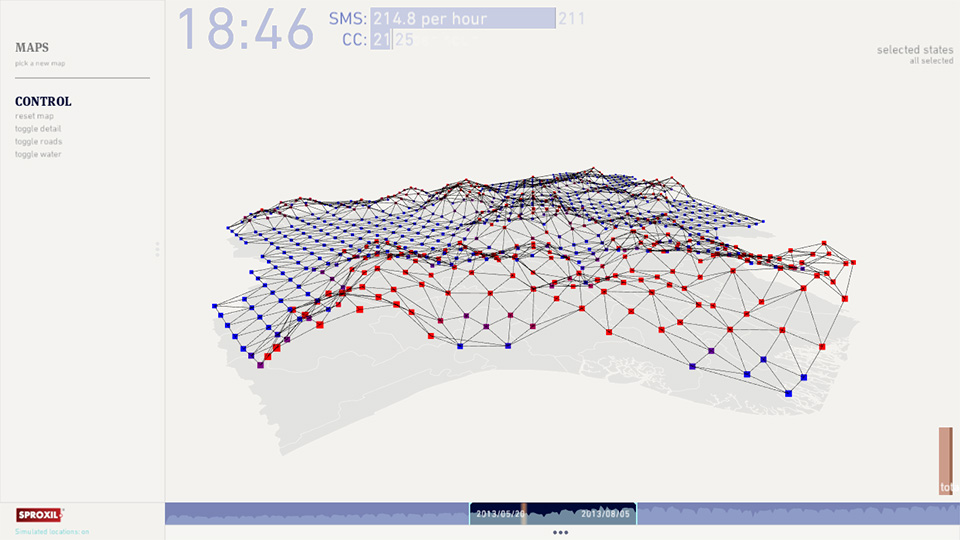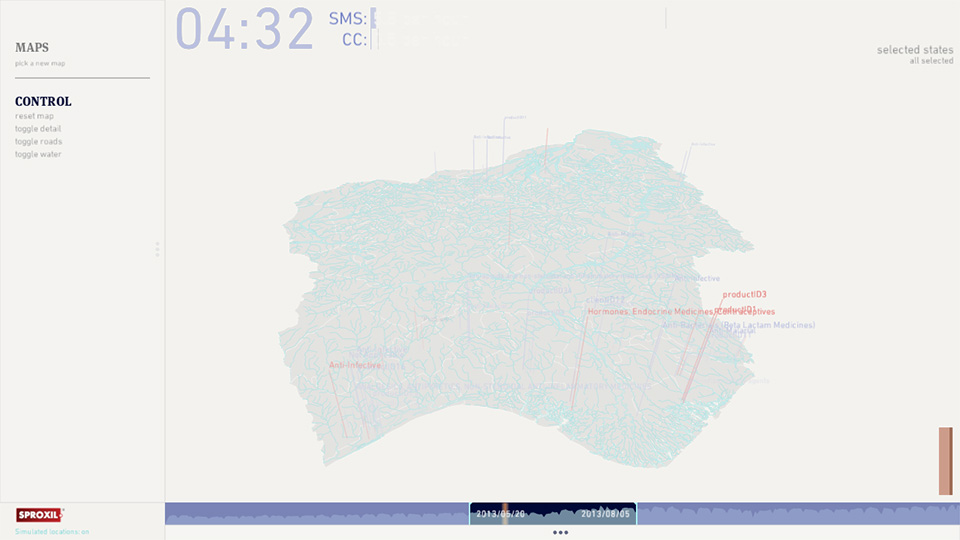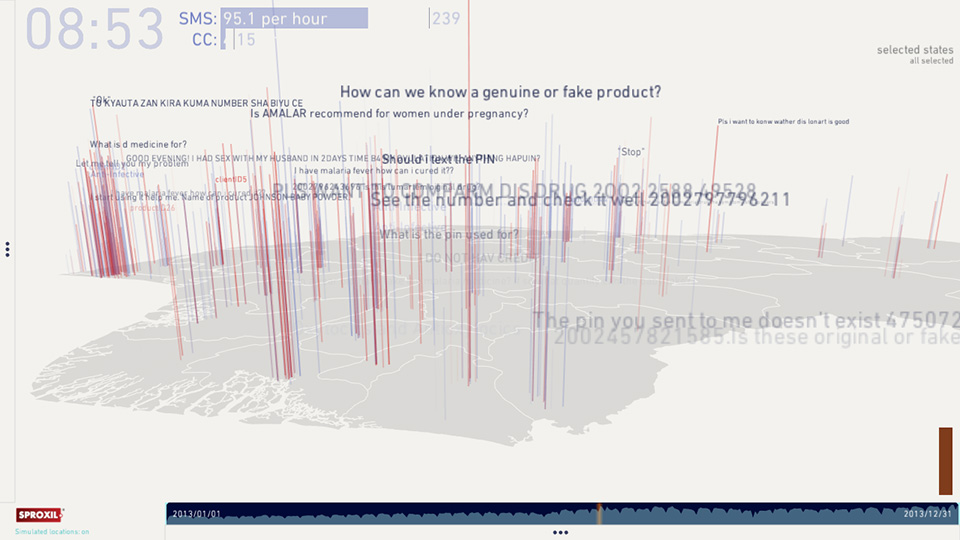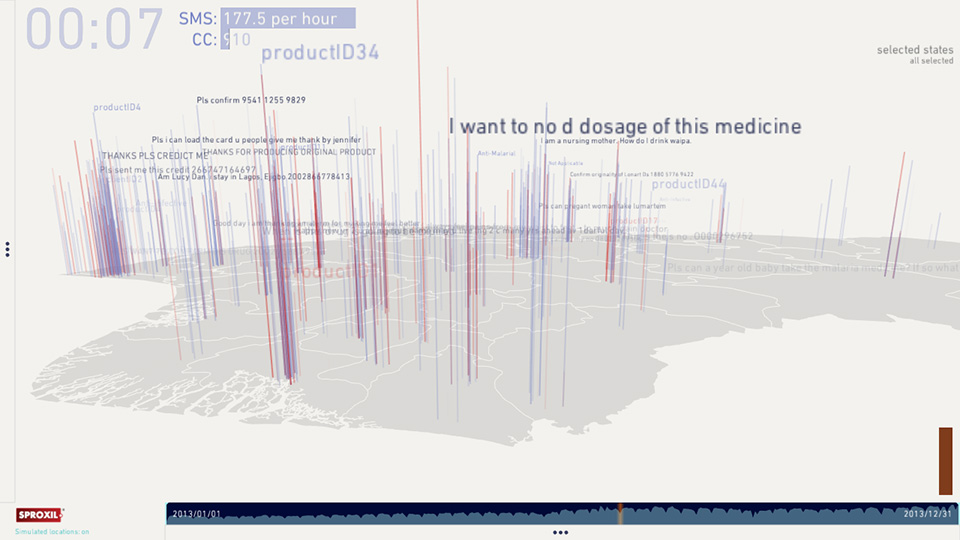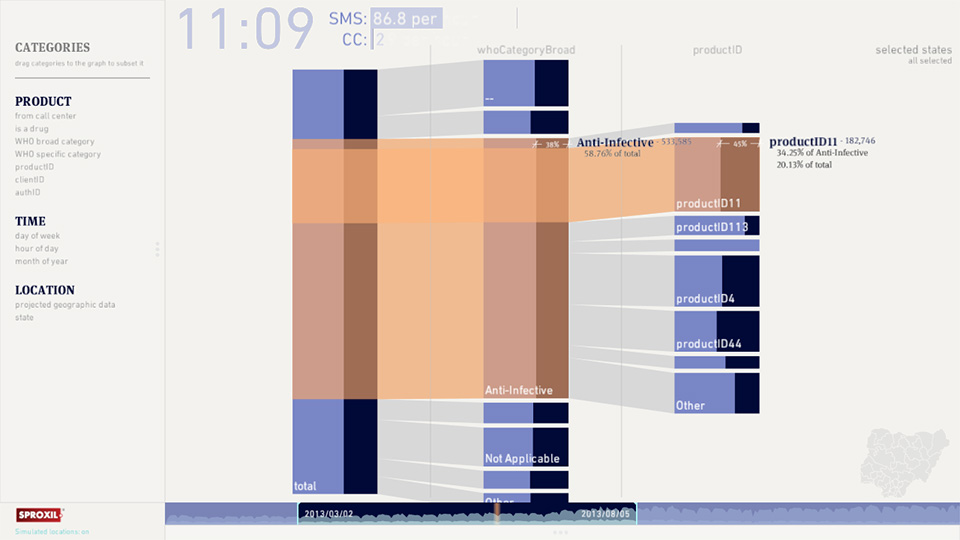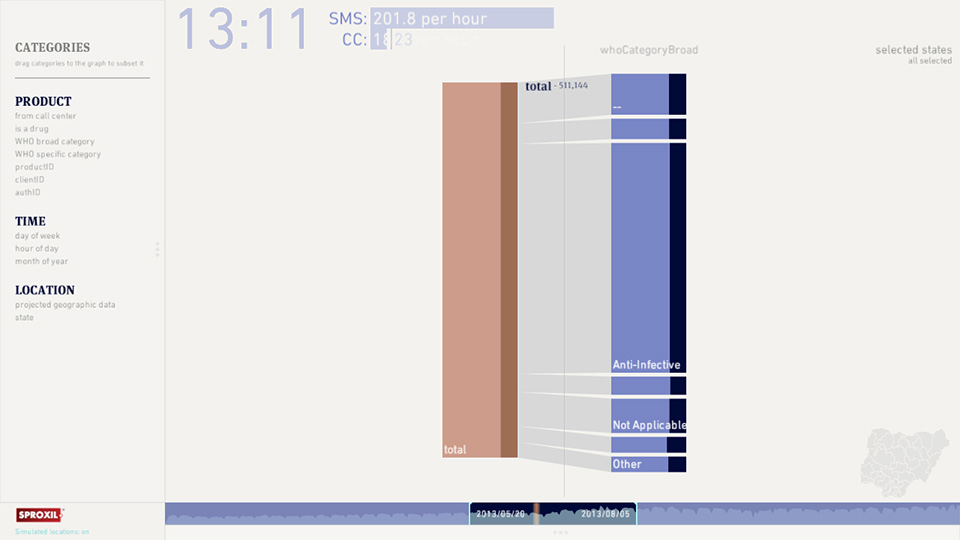Sproxil Visualization Tool
investigating systems of drug counterfeiting in Nigeria
Working with Acumen, a venture fund for social innovation, The Office for Creative Research analyzed a year’s worth of data, collected by Sproxil, to help Nigerians determine whether products they’d purchased, like medication, were counterfeit.
The data logs SMS messages of people throughout Nigeria, who texted a number on the back of their medication bottles or other products to verify the origin. Animating the timestamps of the messages reveals the diurnal pattern of activity, where people were more likely to call after work or into the evening. Similar patterns applied to the days of the week, where Sundays had less message activity than a typical weekday.
The visualization interface also allows users to look deeper into a portion of time, or messages sent from a certain state within Nigeria, or specific products. You can also overlay different datasets onto the visualization, like maps of the percentage of people living in poverty, population density, rainfall, or Nigerian roads and rivers.
One of the more interesting aspects of the visualization were the SMS messages that didn’t follow the standard protocol of merely texting the code on the back of the product to receive an automated response, but instead used personal messages like “I bought your medicine and i felt good thank you.”
